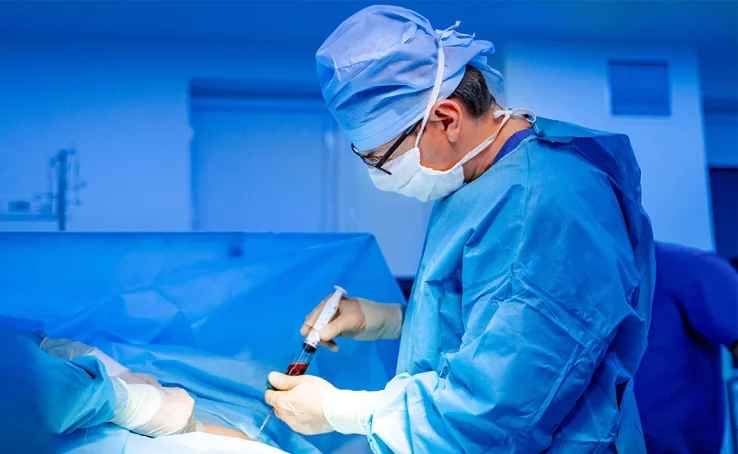Bone marrow transplants are important medical procedures used to treat several serious conditions, including cancers and blood-related disorders. For patients considering this treatment, one of the most pressing questions is about the cost and the factors influencing it. Delhi, being a major healthcare hub, offers this advanced procedure through multiple reputed hospitals and specialists. Understanding what goes into the overall cost of a bone marrow transplant in Delhi helps families plan better, both medically and logistically. While we are not discussing exact pricing here, this post aims to break down what to expect in terms of procedure, influencing factors, and additional considerations that affect the financial aspect.
What Is a Bone Marrow Transplant?
A bone marrow transplant (BMT) replaces damaged or diseased bone marrow with healthy stem cells. These stem cells help the body produce new blood cells and support immune function. The procedure is often recommended for patients with blood cancers like leukaemia or lymphoma, or conditions such as thalassemia and aplastic anaemia.
There are two primary types:
- Autologous transplant: Stem cells are collected from the patient before treatment and reintroduced later.
- Allogeneic transplant: Stem cells are taken from a donor, often a matched family member or unrelated donor.
Each type comes with a different treatment approach, recovery process, and overall cost structure.
Why Choose Delhi for a Bone Marrow Transplant?
Delhi is home to multiple high-quality healthcare institutions with advanced transplant programmes. The city has earned its reputation for excellence in specialised treatments. It offers access to experienced haematologists, transplant surgeons, and multidisciplinary teams supported by strong clinical infrastructure. These centres are equipped with isolated transplant units, advanced diagnostics, and supportive care systems. This makes bone marrow transplant in Delhi a well-regarded option for patients from both India and abroad. The concentration of expertise and the presence of multiple super-speciality hospitals allow patients to explore treatment options that align with their medical and financial needs.
Key Factors That Affect Bone Marrow Transplant Costs
Understanding cost components helps with better planning.
1. Type of Transplant
Autologous transplants generally involve fewer complexities compared to allogeneic transplants. The latter may require donor searches, stem cell harvesting, HLA typing, and more frequent post-operative care.
2. Pre-Transplant Workup
A series of evaluations precedes the transplant. This includes:
- Blood tests
- Imaging scans
- Cardiac, liver, and kidney assessments
- Infectious disease screenings
All of these form a necessary baseline to determine patient fitness for transplant.
3. Hospital Stay and Isolation
Patients undergoing a bone marrow transplant are often kept in isolation rooms to reduce infection risks. The duration of hospital stay varies depending on the body’s response to stem cell infusion and the development of any complications.
4. Medical Team Involvement
Transplants require continuous coordination between haematologists, oncologists, immunologists, and trained nursing staff. The depth of expertise directly contributes to treatment success and the cost structure.
5. Post-Transplant Monitoring
After discharge, long-term monitoring continues for months. Regular follow-ups are essential to check for infection, graft rejection, or complications such as Graft-versus-Host Disease (GVHD) in allogeneic cases.
Additional Considerations Beyond Hospital Bills
Here are some other important elements that may contribute to the overall cost.
- Pre-conditioning therapies like chemotherapy or radiation
- Donor testing and support, including counselling and compatibility checks
- Nutritional support before and after transplant
- Psychological care, as emotional well-being, plays a vital role in recovery
- Logistics for families travelling from outside Delhi, including accommodation and local transport
While these may not always be included in the medical bills, they should be factored in during planning.
Benefits of Undergoing Bone Marrow Transplant in Delhi
Delhi offers a balanced mix of clinical excellence and access. Most transplant centres are equipped with:
- Modern ICUs and transplant wards
- Infection control systems
- Dedicated counselling units
- Support for international patients
Moreover, the competitive nature of the healthcare ecosystem in Delhi ensures that patients have multiple options to consider. Comparing available services and consulting with multiple specialists helps in making informed decisions. Patients seeking bone marrow transplant in Delhi also benefit from transparent protocols and evolving treatment standards.
What Patients Should Keep in Mind
Being prepared helps reduce anxiety and unexpected challenges.
- Recovery takes time. It may be weeks or months before the immune system stabilises.
- Family support and clear communication with the medical team are essential.
- Patients should maintain regular follow-up visits and stick to the treatment plan.
- Attention to hygiene, nutrition, and emotional health can significantly impact recovery outcomes.
Families should also take time to understand the purpose of each stage in the transplant journey, from diagnosis to post-discharge care.
Also Read : Bone Marrow Transplant – Make Your Bone Marrow Healthy Again
Conclusion
A bone marrow transplant in Delhi involves multiple stages, each with its own requirements and considerations. While exact costs can differ based on several clinical and logistical factors, knowing what influences the overall expenses gives families a stronger foundation for planning. Delhi’s medical expertise, coupled with modern facilities and structured transplant protocols, makes it a reliable destination for patients seeking high-quality treatment. Staying informed, asking the right questions, and choosing the right healthcare partner can make a significant difference not just in cost, but also in outcomes and peace of mind.



